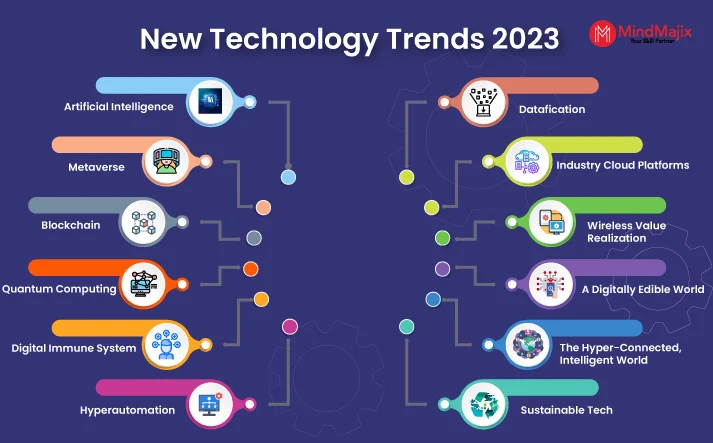Quantum computing has achieved a significant breakthrough, sparking interest in its potential impact on data security and global industries. This development has the potential to revolutionize the way data is encrypted and decrypted, posing both challenges and opportunities for businesses and governments worldwide. As quantum computing technology continues to advance, it raises questions about the future of traditional encryption methods and the need for new security protocols in various sectors. The implications of this breakthrough extend beyond data security, with potential effects on industries such as finance, healthcare, and telecommunications. As quantum computing capabilities evolve, it is crucial for stakeholders to understand the implications and adapt to this transformative technology.
The recent advancements in quantum computing have led to speculation about the future of data protection and its implications for global economies. This breakthrough has triggered discussions about the potential vulnerabilities of current encryption methods and the need for quantum-resistant security measures. Industries are now contemplating the potential impact on their operations and the necessity of investing in quantum-safe technologies. As the race to harness the power of quantum computing intensifies, organizations are exploring the opportunities it presents for innovation and enhanced computational capabilities. The implications of this breakthrough are not limited to data security, as they also encompass the potential for disruptive changes in various sectors, from supply chain management to artificial intelligence.
1. Quantum Computing: A Game-Changer in Data Security
Quantum computing represents a monumental breakthrough in data security, as it has the potential to render current encryption methods obsolete. Unlike classical computers, which use bits to process information in binary form (0s and 1s), quantum computers use quantum bits or qubits. This allows them to perform complex calculations at a much faster rate and with significantly more processing power than traditional computers. As a result, quantum computers have the capability to crack encryption methods that are currently considered secure, posing a significant threat to data security.
On the other hand, quantum computing also offers the potential for developing new, ultra-secure encryption methods. Quantum key distribution (QKD) is one such example, where quantum mechanics is used to create and distribute encryption keys, making them theoretically impervious to hacking attempts. In the realm of data security, the emergence of quantum computing presents both a challenge and an opportunity, prompting the need for research and innovation in quantum-resistant cryptography.
2. Implications for Global Industries
The impact of quantum computing extends far beyond data security, with implications for a wide range of global industries. One of the most significant areas of influence is in the field of pharmaceuticals and healthcare. Quantum computing has the potential to revolutionize drug discovery and development processes by simulating molecular interactions and protein folding at a level of complexity that is currently impossible with classical computers. This could lead to the development of new, more effective medications and treatments for a variety of diseases and health conditions.
Furthermore, quantum computing holds promise for optimizing supply chain and logistics operations, solving complex optimization problems in real time. This could result in more efficient transportation routes, inventory management, and resource allocation, ultimately leading to cost savings and improved sustainability. Additionally, quantum computing has the potential to accelerate advancements in materials science, financial modeling, and climate research, among other fields, making it a transformative force across global industries.
3. Challenges in Harnessing Quantum Computing
Despite its immense potential, quantum computing is not without its challenges. One of the primary obstacles is the delicate nature of qubits, which are highly susceptible to interference from their environment. This makes it difficult to maintain the fragile quantum state necessary for performing calculations accurately. Researchers and engineers are actively working on developing error correction techniques and qubit stabilization methods to address this challenge and improve the reliability of quantum computing systems.
Another major hurdle is the current lack of accessible and scalable quantum hardware. Building and maintaining quantum computers with a sufficient number of qubits and low error rates is a complex and expensive endeavor. As a result, the development of practical quantum computing systems that can be widely utilized by industries and researchers is still in its early stages. Overcoming these technical barriers will be crucial in realizing the full potential of quantum computing and harnessing its power for practical applications.
4. Quantum Computing and Cybersecurity
Quantum computing has significant implications for cybersecurity, particularly in the realm of cryptographic protocols and secure communication channels. With the potential to break traditional encryption methods, quantum computers could pose a threat to sensitive data transmission and storage. As a result, there is a growing urgency to develop quantum-resistant cryptographic algorithms that can withstand the computational power of quantum attacks.
At the same time, quantum computing also offers the potential to enhance cybersecurity measures through the use of quantum-resistant encryption techniques, such as lattice-based cryptography and hash-based signatures. By leveraging the unique properties of quantum mechanics, these methods can provide a new layer of security for digital communication and data protection. As quantum computing continues to advance, the intersection of quantum technology and cybersecurity will be a critical focus for ensuring the integrity and confidentiality of sensitive information.
5. Quantum Computing and Financial Services
The financial services industry stands to benefit significantly from the advancements in quantum computing, particularly in the areas of risk analysis, portfolio optimization, and algorithmic trading. Quantum computing has the potential to process vast amounts of financial data and perform complex calculations at a speed and scale that surpasses traditional computational methods. This could lead to more accurate risk assessments, improved investment strategies, and enhanced predictive modeling for market trends.
Additionally, quantum computing has the potential to disrupt the field of cryptography and secure financial transactions through the implementation of quantum-resistant encryption methods. By leveraging the power of quantum technology, financial institutions can enhance the security of digital payments, blockchain networks, and sensitive financial data. As quantum computing continues to evolve, its impact on the financial services sector is poised to drive innovation and transformation in the way financial operations are conducted.
6. Quantum Computing and Artificial Intelligence
Quantum computing has the potential to revolutionize the field of artificial intelligence (AI) by enabling more complex and efficient machine learning algorithms and data processing capabilities. With its ability to handle massive datasets and perform parallel computations, quantum computing can accelerate the training and optimization of AI models, leading to more advanced AI applications and technologies.
Furthermore, quantum computing can enhance the performance of quantum neural networks and quantum machine learning algorithms, unlocking new opportunities for solving complex AI challenges. By harnessing the principles of quantum mechanics, AI researchers and practitioners can explore novel approaches to pattern recognition, natural language processing, and autonomous decision-making. The synergy between quantum computing and AI has the potential to drive significant advancements in intelligent systems and cognitive technologies.
7. Quantum Computing and Energy Sector
In the energy sector, quantum computing holds promise for optimizing energy production, distribution, and storage systems. By leveraging quantum algorithms, energy companies can improve the efficiency of renewable energy sources, grid management, and resource allocation. Quantum computing can also facilitate the development of advanced materials and technologies for energy storage and conversion, contributing to the transition towards sustainable and eco-friendly energy solutions.
Moreover, quantum computing has the potential to address complex optimization problems in the energy industry, such as resource allocation, supply chain management, and predictive maintenance for infrastructure. This could lead to more resilient and responsive energy systems, ultimately enhancing the reliability and sustainability of global energy networks. As quantum computing continues to advance, its application in the energy sector is poised to drive innovation and efficiency across the entire value chain.
8. Quantum Computing and Aerospace Technology
Quantum computing has the potential to revolutionize aerospace technology by enabling more accurate simulations, advanced propulsion systems, and optimized aerospace design. With its ability to process complex aerodynamic models and perform high-fidelity simulations, quantum computing can accelerate the development of next-generation aircraft and spacecraft. This could lead to advancements in fuel efficiency, aerodynamic performance, and structural design for aerospace vehicles.
Furthermore, quantum computing can enhance the optimization of air traffic management systems, leading to improved safety, efficiency, and sustainability in aviation. By leveraging quantum algorithms, aerospace engineers and researchers can address complex optimization challenges in airspace utilization, route planning, and airspace design. The integration of quantum computing in aerospace technology has the potential to drive innovation and shape the future of air transportation and space exploration.
Quantum Computing Breakthrough: What It Means For Data Security And Global Industries
| Topic | Description |
|---|---|
| Quantum Computing | A new type of computation that takes advantage of the strange ability of subatomic particles to exist in more than one state at any time. |
| Data Security | The protection of digital data from unauthorized access, corruption, or theft. |
| Global Industries | Diverse sectors of the global economy, including technology, finance, healthcare, and manufacturing. |
Quantum computing breakthroughs have the potential to revolutionize data security and impact global industries. With its ability to process vast amounts of data and solve complex problems at an unprecedented speed, quantum computing can enhance encryption methods, improve cybersecurity, and transform various sectors of the global economy.




